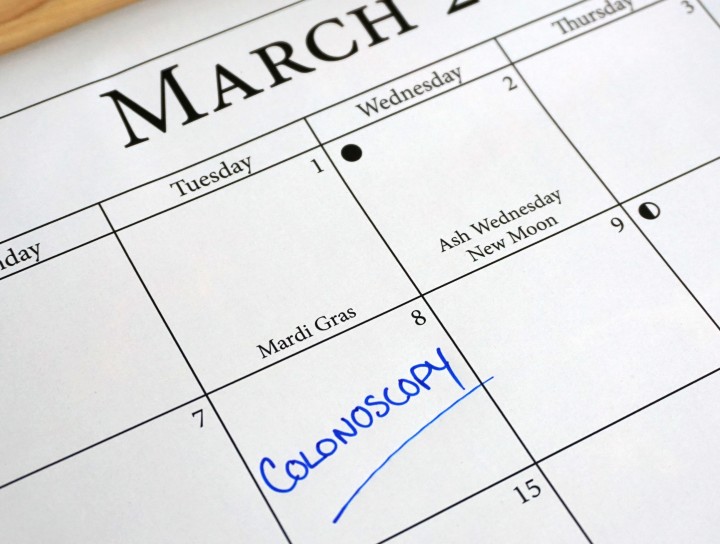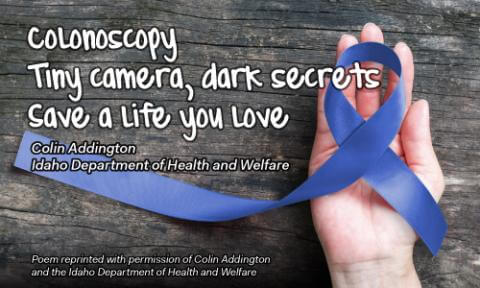

March 29, 2017
March is Colorectal Cancer Awareness Month. And since I’ve lived with Crohn’s disease (a type of inflammatory bowel disease) for 28 years, I try to find as much humor as I can when it comes to any type of bowel screening. I’ve had at least a dozen colonoscopies over the years. And I’ve tried all the different preparations for colon cleansing.
If you are age 50 or older, call your doctor to see if you should have this important screening. If you have a friend, parent or neighbor who is age 50 or older, ask them to call their doctor, too. Colorectal cancer is serious business; there’s no joking about a cancer diagnosis. But there’s good news: Modern medicine has made tremendous advances in detecting colorectal cancer early and successfully treating it.
Have Peace of Mind About Your Colorectal Cancer Screening
I don’t know anyone who hasn’t complained about getting a colorectal exam. Let me help you with any misunderstandings you may have about the exam and what it involves.
- “The test is difficult or painful.” Actually, you can take some colorectal cancer tests right in your home, without any pain or discomfort.
- “I’m too embarrassed to talk about my bowel movements with my doctor.” Believe me, your doctor has seen and heard it all. Your doctor wants you to be honest and tell them everything going on with your body.
- “Nobody in my family has ever had colon cancer, so I’m not at risk.” I’m the first person in my family to have Crohn’s disease. Just because nobody else in your family has ever had colon cancer doesn’t mean you can’t get it. The American Cancer Society urges all individuals at average risk to be screened for colorectal cancer.
- “I don’t have any symptoms of colon cancer.” Screening can help detect early signs of colorectal cancer before you start to have symptoms.
- “I don’t want to do the prep.” Clear liquids, Jell-O, broth – mmm. Your doctor can prescribe many different types of bowel cleansing preparations depending on your needs. To have accurate results, it’s important that your colon is completely empty. You don’t want to have to go through all that work to hear you need to reschedule because you weren’t “clean.”
- “I’ve heard the test is very expensive.” Your Florida Blue health plan covers many preventive screenings, like colorectal cancer screening, at no additional cost to you. At-home tests are very affordable, but screenings like sigmoidoscopy, colonoscopy and ColoGuard® are also covered as part of your benefits. For more details, simply log in to your account on floridablue.com (or bluemedicarefl.com if you are a Medicare member) and look up your plan information.
- “I can’t take time off of work for the exam,” or “I have no one to drive me home.” Some tests don’t have these issues. Talk to your doctor to see which test is right for you.
For more information, check out these great resources for colorectal cancer screening:
- Cancer.gov – Created by the National Cancer Institute, this website has helpful articles, videos and comparison tools. Learn about different tests for colorectal cancer screening, and why you should care about being tested.
- Cancer.org – Search the American Cancer Society’s website for valuable information about all types of cancer screenings, including colorectal cancer screening.
- Health Matters – This website for Idaho State Employees contains a wealth of helpful resources about colorectal cancer screening, in a variety of formats. Check out the poetry for some humorous perspectives about colorectal cancer screening.
